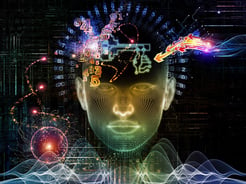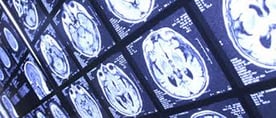 Technology moves at a rapid pace, so it is no surprise that we are in an era of cognitive computing - hardware and/or software that simulates the functioning of the human brain.
Technology moves at a rapid pace, so it is no surprise that we are in an era of cognitive computing - hardware and/or software that simulates the functioning of the human brain.
According to IBM, Watson is “a technology platform that uses natural language processing and machine learning to reveal insights from unstructured data.” It actually reads and interprets text, discerns meaning, and gives inferences and responses. It learns via natural language, generates hypotheses, and it actually generates and looks for evidence to support the hypotheses, running analytics against a body of data. All of this allows experts to make more informed decisions.
Imagine feeding Watson information on patient history, symptoms, articles on particular diseases, best practices, diagnostics, and more and having it take the data and provide a recommendation. The provider receives a quick analysis to help make better treatment decisions.
IBM Watson is the big player in cognitive computing right now, but competition is growing with the likes of Apple, Google, Microsoft, Dell, Hewlett-Packard and more. Looking into the future these are just a few of the advantages we should see from these platforms:
Mining data from medical records
Google’s DeepMind, is currently working with three hospitals in London, being given access to their patient’s data. According to a report by the New Scientist, it includes information about patients with HIV, drug overdoses, abortions and other patient data. The intent of the project is to monitor patients with kidney disease. It’s end game is to support providers by finding patterns and making predictions that a human could not possibly put together.
Analyze images
IBM’ Medical Sieve, is a type of cognitive assistant. It’s specialty is radiology and cardiology offering help in clinical decision making. It analyzes radiology images quicker and with better reliability, helping radiologists focus on the most complicated images.
Offer options via online consultations
Babylon is a system that allows patients to report their illness to an app. The system analyzes data such as patient history and current symptoms then recommends a course of action after looking through its database of diseases. The app is also used to remind patient’s of current care such as medications and then follows up to see how they are feeling.
Medication management
For patient’s that are non-compliant, participate in clinical trials, or have serious medical conditions, a patient monitoring system called The AiCure app is helping to monitor patients and support them in managing their condition.
non-compliant, participate in clinical trials, or have serious medical conditions, a patient monitoring system called The AiCure app is helping to monitor patients and support them in managing their condition.
The possibilities are endless! Machines can take in tons of data and process it quickly. Humans cannot possibly handle the same amount of data. Therefore, Cognitive Computing offers patterns and answers that humans would not have known existed. It makes a calculable difference and keeps learning and adapting. Since healthcare is full of data such as information in EHR’s, patient generated information, provider assessments, patient history, etc., it makes sense to embrace the future of cognitive computing.
The Mindware Connection
Making Your Office More Productive and Efficient JUST USING YOUR VOICE!



